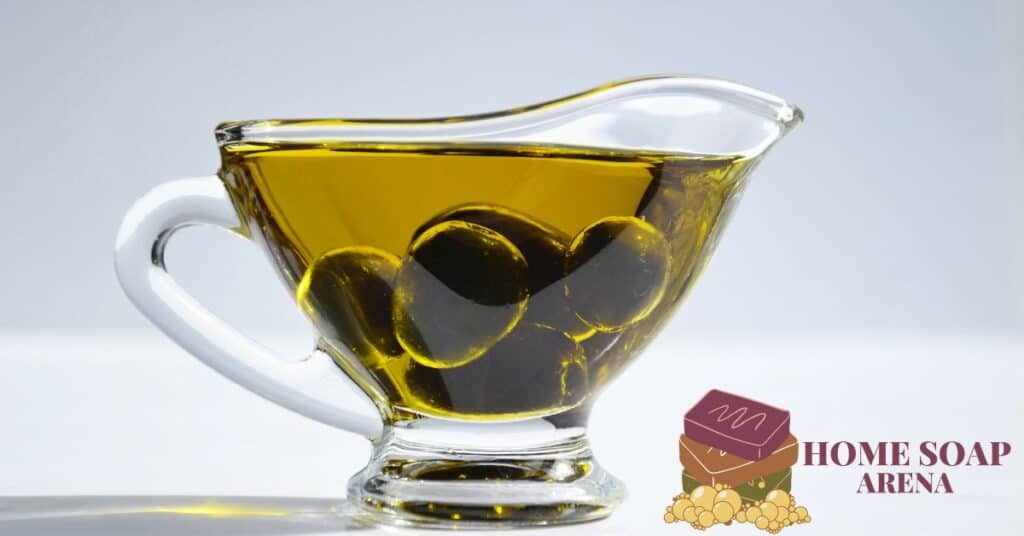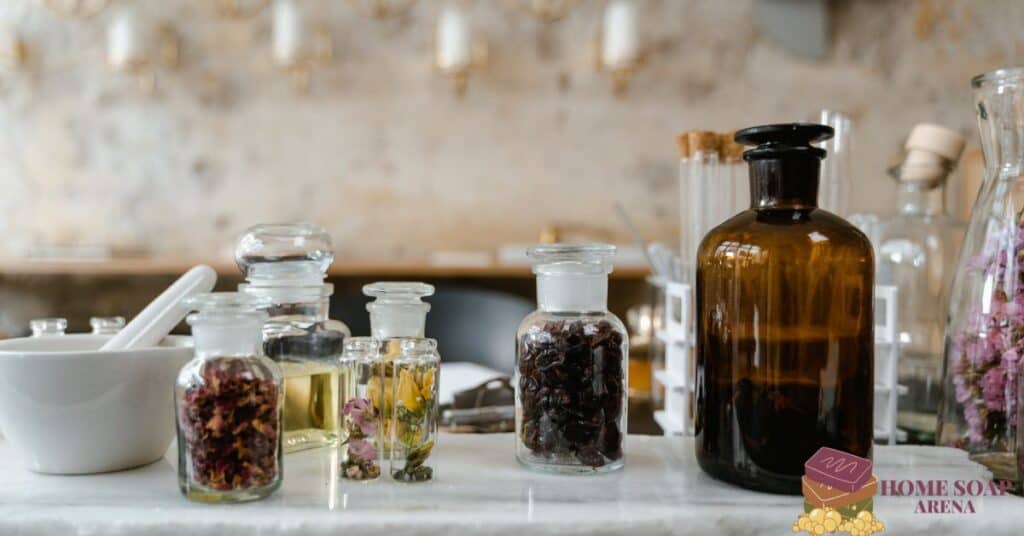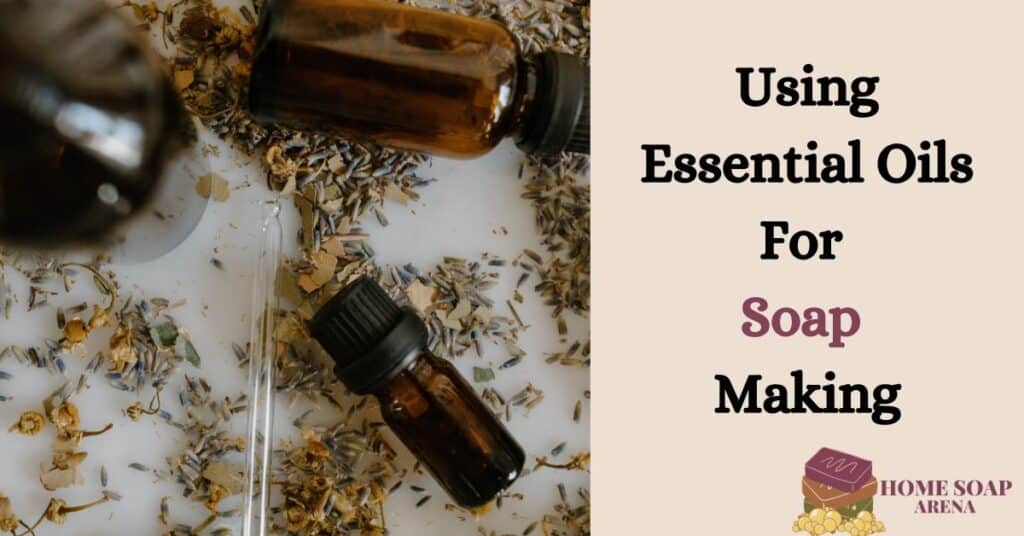Table of Contents
- Where Can I Buy Essential Oils To Make Soap
- Where To Buy Soap-Making Supplies
- Which oil is best for soap-making
- What Is The Cheapest Oil For Soap Making
- Can I use cooking oil for soap-making
- What Oil Makes Soap Last Longer
- Final Thought
Do you want to know Where to buy oil for soap? Let me show you a few places I use.
I’ve been in the soap-making industry for years, and based on my knowledge, I can tell you all you need to know about soap, including where to buy soap-making oil.
But first, draw a picture of how your soap should look at the conclusion of the procedure to assist you in deciding which oil to use.
Hence, this is where I recommend you acquire your soap-making materials!
Now, let’s get started.
Where Can I Buy Essential Oils To Make Soap
Sourcing essential oils for soap production may be time-consuming. To begin, you must be able to distinguish between actual essential oils and fragrance oils.
When purchasing on Amazon or eBay, you’ll come across a lot of fake essential oils, so be cautious and research the producer.
MLM essential oils, such as those sold by Young Living and DoTerra, should be avoided when creating soap. They are prohibitively pricey.
Because the amount of essential oil in soap recipes can be rather large, most soapmakers choose mid-range essential oils.
Stick to the sorts available from soap-making vendors. You’ll often have the option of going organic, which is more expensive but of greater quality.
Smaller bottles (50-100ml) are ideal for beginners, but if you use a lot, you may get essential oils by the liter or even in greater quantities.
I also buy directly from essential oil vendors and routinely use Naissance and FreshSkin essential oils (both from the United Kingdom).
If you want a higher quality product, attempt to get your essential oil directly from the manufacturer.
There could even be a flower farm in the area that produces fresh hydrosols and essential oils like lavender, chamomile, and peppermint.
Hydrosols are best utilized in lotions and leave-on cosmetics, although essential oils are used to smell many natural soaps.
Instead, many soap producers get their essential oils from a soap manufacturing provider. It removes the uncertainty about good quality and purity from the procedure.
The best essential oil, on the other hand, will come from a supplier that has direct links to the essential oil maker. That’s why I get practically all of my essential oils for soap-making from Naissance.
Mountain Rose Herbs and New Directions Aromatics both have a stellar reputation in the United States. You may find out where the plants were cultivated by contacting these firms.
Other details include whether they were cultivated organically, their chemical makeup, and the extraction technique.
Where To Buy Soap-Making Supplies
When I make soap in front of a live audience, I frequently receive the question, “Where do you buy your soap-making supplies?”
I went into great depth on soap materials in my How to Make Soap for Beginners E-Course, but I’d include it here for my visitors who are looking for a broad sense of where to begin.
By the way, I recommend taking my E-course if you are new to producing soap. With a video included, I lead you through the process of making soap at home step by step.
I shop around for my soap products. They are all excellent, and each has a product I like more.
Instead of paying for shipping, you may search your local stores to see if you can get some of these soap-making items for less money.
When I only need to create a small batch of soap, I’ve been able to get lye, olive oil, and coconut oil nearby.
Which oil is best for soap-making
There are a select few oils that really shine when it comes to soap production. Coconut oil, olive oil, and palm oil are some of the oils that can be used to make bar soap.
Liquid soap made with castor oil is a wonderful option for those with dry or sensitive skin. Liquid soap can also be made with jojoba oil or almond oil.
Bar soap made with avocado oil is another excellent option. It’s a thick oil that produces a luxurious foam when used for bathing.
You may get a detailed PDF from a wholesale supplier that will assist you in selecting the best oils for your soap-making projects.
This table includes information on each oil, including its properties, kind, and amount of foam it produces.
A table comparing the merits of several oils is also included. If you want to learn how to create soap on your own, this is a fantastic resource.
What Is The Cheapest Oil For Soap Making
The cheapest oils to use in soap production are as follows:
Canola Oil: One Year’s Supply
Soap made from canola oil is a low-cost choice. It creates a well-balanced bar with rich foam. It can also stand in for olive oil quite successfully. Canola oil can be used in the cold processing range of 15-40%.
Two-year storage for carrot-seed oil
The smoothness of this oil is unrivaled. It’s ideal for individuals with delicate skin because it’s non-greasy and easily absorbed. Use at a rate of 5- 15% in cold process soap.
Two-year guarantee on castor oil
The castor bean plant yields this viscous extract. It has a fantastic lathering effect in soap and helps pull moisture to the skin.
We suggest a 2-5% concentration. Up to 25% is OK, but anything above 10% might make the bars too mushy and sticky to eat.
4 Year Supply of Chia Seed Oil
Whether you’re making soap, body butter, conditioner, or cuticle oil, chia seed oil is the perfect ingredient.
You’ll be delighted by how pleasant and hydrating it is. Fatty acids, protein, and vitamins can all be found in the oil. Around 10% of its potential application is in cold processing.
Can I use cooking oil for soap-making
Yes. There are two steps involved in turning leftover cooking oil into soap: purification and saponification.
Temperature, lye pH, and the effects of bleaching with and without hydrogen peroxide were all tested. To handle the used oil, maize flour was employed to purify the oil.
After that, the refined oil was filtered.
In order to make soap, we added lye solution and a few drops of fragrant essential oil to filter used cooking oil and stirred the mixture until it got sticky.
The liquid was poured into a mold and given time to set. The effectiveness of soap was evaluated using the iodine test.
After properly shaking, five drops of the resultant soap solution were added to the iodine.
What Oil Makes Soap Last Longer
Increase your use of hard oils. In the shower, you may often get more use out of harder bars of soap. A firmer bar of soap can be produced by using a greater quantity of hard oils.
Hard oils are oils that remain solid even when the temperature is at room temperature. Some examples of hard oils are palm oil, coconut oil, beeswax, and palm kernel flakes.
In most cases, a bar of soap is regarded to be firm if it contains around 60 percent hard oils.
This appears to be composed of thirty percent coconut oil, thirty percent palm oil, thirty percent olive oil, and ten percent “something extra.”
If your soap has a high proportion of soft oils, letting it cure for a longer period may help it maintain its quality for a longer period in the shower.
For instance, soap known as Castile soap, which is prepared entirely from olive oil, has the most advantages from being aged for anywhere between six months and a whole year.
Final Thought
Now that we have established Where to buy oil for soap, this should serve as an excellent starting point for locating supplies for soap production.
The process may seem overwhelming at first, but if you begin with my suggestions and gradually branch out, you’ll have all you need to make your first batch of soap.



